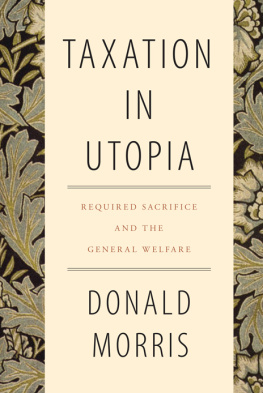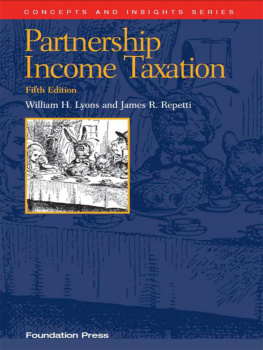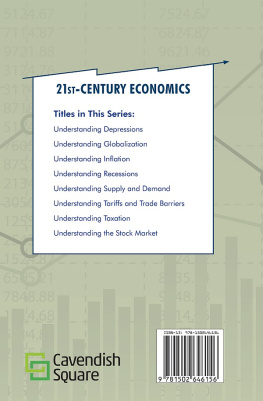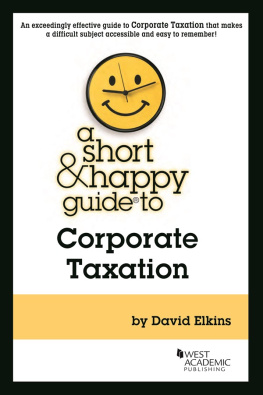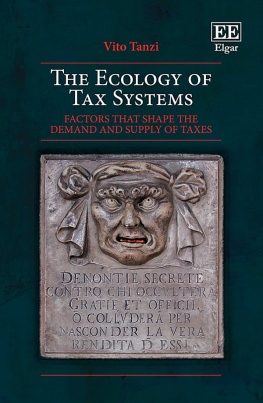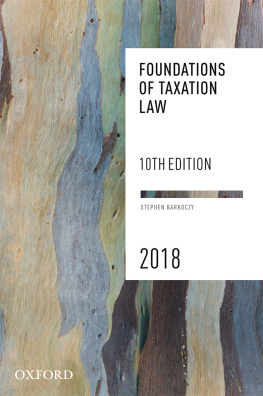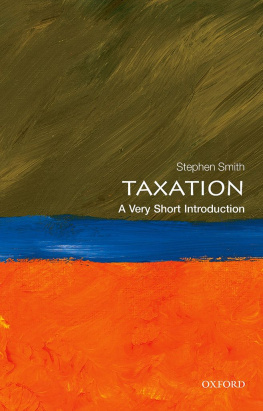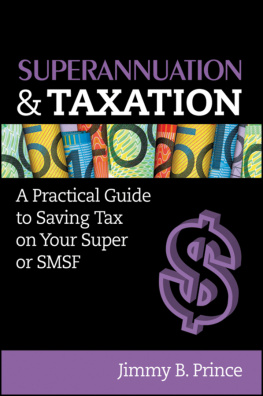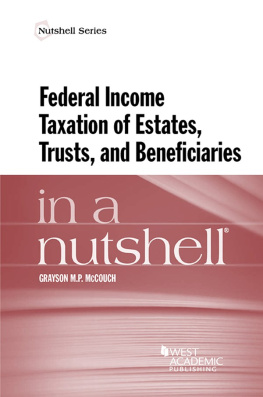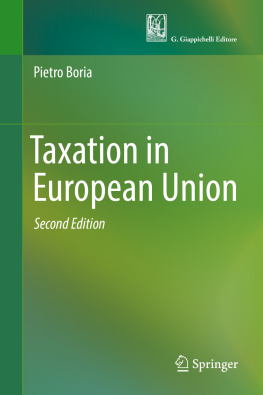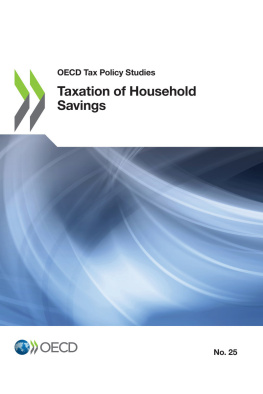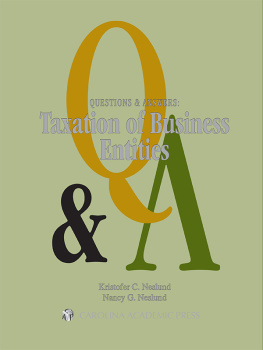TAXATION
IN
UTOPIA
TAXATION
IN
UTOPIA
REQUIRED SACRIFICE
AND THE
GENERAL WELFARE
DONALD MORRIS
Cover: Anemone, designed by William Morris, 1876. Jacquard-woven silk and wool or silk damask fabric.
Published by State University of New York Press, Albany
2020 State University of New York
All rights reserved
Printed in the United States of America
No part of this book may be used or reproduced in any manner whatsoever without written permission. No part of this book may be stored in a retrieval system or transmitted in any form or by any means including electronic, electrostatic, magnetic tape, mechanical, photocopying, recording, or otherwise without the prior permission in writing of the publisher.
For information, contact State University of New York Press, Albany, NY
www.sunypress.edu
Library of Congress Cataloging-in-Publication Data
Names: Morris, Donald, 1945 author. | State University of New York.
Title: Taxation in utopia : required sacrifice and the general welfare / Donald Morris.
Description: Albany : State University of New York, 2020. | Includes bibliographical references and index.
Identifiers: LCCN 2020000964 (print) | LCCN 2020000965 (ebook) | ISBN 9781438479477 (hardcover : alk. paper) | ISBN 9781438479491 (ebook)
Subjects: LCSH: Taxation. | Political sciencePhilosophy. | UtopiasEconomic aspects.
Classification: LCC HJ2305 .M67 2020 (print) | LCC HJ2305 (ebook) | DDC 336.2001dc23
LC record available at https://lccn.loc.gov/2020000964
LC ebook record available at https://lccn.loc.gov/2020000965
10 9 8 7 6 5 4 3 2 1
To Keith and SarahShigaloyov continued: Having devoted my energies to the question of social organization in any future society Ive come to the conclusion that all creators of social systems, from ancient times down to our own in 187_, were dreamers, story-tellers and fools who understood absolutely nothing about natural science or that strange animal called man. Im proposing my own system of world organization. Moreover, I must declare in advance that my system is not yet complete. I became lost in my own data and my conclusion contradicts the original premise from which I started. Beginning with the idea of unlimited freedom, I end with unlimited despotism.
Dostoevsky, Devils
Fyodor Dostoevsky, Devils, trans. Michael R. Katz (Oxford: Oxford University Press, 1992), 426.
CONTENTS
ACKNOWLEDGMENTS
I would like to thank the librarians at the Newberry Library in Chicago, the Supreme Court Library in Springfield, Illinois, and the Brookins Library at the University of Illinois, Springfield for affording access to scarce and out-of-print materials. I am also grateful for the observations and suggestions of the three anonymous reviewers enlisted by SUNY Press as well as the encouragement and guidance of Andrew Kenyon, Senior Acquisitions Editor, philosophy, in implementing the reviewers recommendations. Also from SUNY Press, I extend my appreciation to Ryan Morris, Senior Production Editor, for her expertise and to Holly Rogers for her editorial enhancements. The engaging meetings of The Society for Utopian Studies and the compelling investigations in its journal Utopian Studies have kindled my interest in the role of utopias as stimulants to the moral imagination. The editorial efforts of Sabrina Leroe improved the precision and readability of the text and reduced, to a considerable degree, potential strain on the readers patience. James Bockmiers editorial assistance enhanced the works organization and clarity as well as its stylistic consistency. I would also like to express my appreciation to my colleague Rosina Neginsky, my friend Dana Plank, my brother Jim, and my son Keith for reading slices of developmental versions of this work. Their critical comments and stimulating counsel provided early insights into the challenges I faced. The discussion of Orwells Nineteen Eighty-Four in chapters two and three includes portions adapted from my article Privacy and Control in Orwells Nineteen Eighty-Four, in Critical Insights: Nineteen Eighty-Four, edited by Thomas Horan (Ipswich, MA: Salem Press, Grey House Publishing, 2016), 21327. Cover design image by William Morris from rawpixel.com / The Metropolitan Museum of Art.
INTRODUCTION
Judge Learned Hand observed, it is hard to imagine any tax whose imposition was not in some degree dictated by its effect on the public interest. On November 6, 2017, as the US Congress prepared to complete work on a wide-ranging tax bill, the House chaplain, Reverend Patrick J. Conroy, SJ, offered a prayer.
As legislation on taxes continues to be debated this week and next, may all Members be mindful that the institutions and structures of our great Nation guarantee the opportunities that have allowed some to achieve great success, while others continue to struggle. May their efforts these days guarantee that there are not winners and losers under new tax laws, but benefits balanced and shared by all Americans.
The prayer angered some members of Congress who sought the chaplains dismissal; they perceived the prayer as a political rather than a religious invocation. Like Mustapha Mond, the World Controller in Huxleys Brave New World, they preferred God in the safe and Ford on the shelves.
This book addresses utopian political philosophy and its ethical underpinnings from the neglected perspective of taxation, defined in its broadest terms. As I explain more fully in the text, I chose utopias for the same reasons that investigators exploring other problems control variables, adopt simplifying assumptions, and develop conceptual models. And while moral concerns permeating taxation are illustrated in the context of utopian literature, this is not an argument for a stand-alone tax utopia or a practical treatise on tax reform.
The ethical contours of political entitieswhether utopian or actualare determined by the relation of citizens to each other and to the state. One indicator of these relations is exposed by examining the modes of taxation society employs. In this study I view taxation more broadly than government revenue to include governmental impositions on the person, property, privileges, occupations, and enjoyment of the people. and eugenic procedures), and 5) the proprietorship of land (common vs. private ownership).
Most utopians devote little time to describing their pecuniary tax systems. In Mores Utopia and Bellamys Looking Backward, for example, there is no pecuniary taxation because there is no money. Hertzkas Freeland and Wellss A Modern Utopia are exceptions. But ridding ones utopia of pecuniary taxes is not a utopian triumph, foras I attempt to showthis merely transforms the nature of the required sacrifice, resulting in a new mode of taxation. The body of this text traces the moral dimensions of taxation through the utopian writings of political theorists, including Plato, More, Campanella, Bacon, Harrington, Godwin, Owen, Saint-Simon, Spencer, George, and Nozick, as well as novelists and other literary figures, including Tolstoy, Bellamy, Hertzka, Morris, Wells, London, Gilman, Zamyatin, Huxley, Orwell, Skinner, Rand, and Le Guin.
Since I define taxation more broadly than government revenue to include other potentially unrequited sacrifices government demands from its citizens, taxation is placed in its wider historical and functional contexts as a political device for promoting governments vision of the general welfare. Though this is a discussion of taxation in utopias, it is reinforced by conventional political and philosophical sources, including political economists and illustrations from morally relevant contemporary events and discussions.

